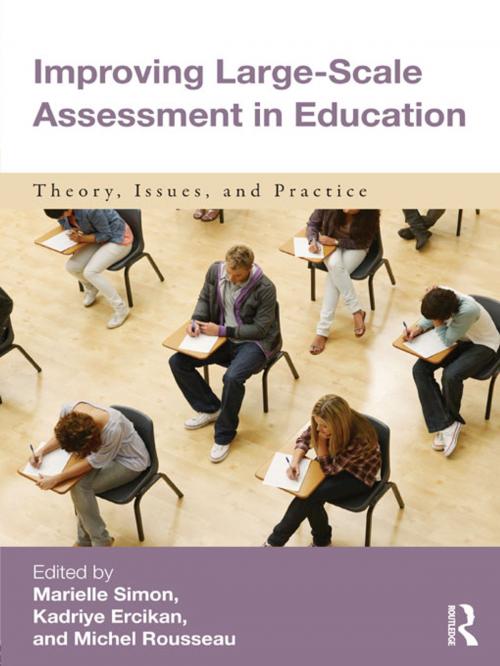Improving Large-Scale Assessment in Education
Theory, Issues, and Practice
Nonfiction, Reference & Language, Education & Teaching, Educational Theory, Testing & Measurement| Author: | ISBN: | 9781136578342 | |
| Publisher: | Taylor and Francis | Publication: | August 21, 2012 |
| Imprint: | Routledge | Language: | English |
| Author: | |
| ISBN: | 9781136578342 |
| Publisher: | Taylor and Francis |
| Publication: | August 21, 2012 |
| Imprint: | Routledge |
| Language: | English |
Large-scale assessments (LSAs) play a growing role in education policy decisions, accountability, and education planning worldwide. This book focuses on central issues that are key components of successful planning, development and implementation of LSAs. The book’s main distinction is its focus on practice- based, cutting-edge research. This is achieved by having chapters co-authored by world-class researchers in collaboration with measurement practitioners. The result is a how-to book whose language is accessible to practitioners and graduate students as well as academics.
No other book so thoroughly covers current issues in the field of large-scale assessment. An introductory chapter is followed by sixteen chapters that each focus on a specific issue. The content is prescriptive and didactic in nature but based on the most recent scientific research. It includes successful experiences, exemplary practices, training modules, interesting breakthroughs or alternatives, and promising innovations regarding large-scale assessments. Finally, it covers meaningful topics that are currently taking center stage such as motivating students, background questionnaires, comparability of different linguistic versions of assessments, and cognitive modeling of learning and assessment.
Large-scale assessments (LSAs) play a growing role in education policy decisions, accountability, and education planning worldwide. This book focuses on central issues that are key components of successful planning, development and implementation of LSAs. The book’s main distinction is its focus on practice- based, cutting-edge research. This is achieved by having chapters co-authored by world-class researchers in collaboration with measurement practitioners. The result is a how-to book whose language is accessible to practitioners and graduate students as well as academics.
No other book so thoroughly covers current issues in the field of large-scale assessment. An introductory chapter is followed by sixteen chapters that each focus on a specific issue. The content is prescriptive and didactic in nature but based on the most recent scientific research. It includes successful experiences, exemplary practices, training modules, interesting breakthroughs or alternatives, and promising innovations regarding large-scale assessments. Finally, it covers meaningful topics that are currently taking center stage such as motivating students, background questionnaires, comparability of different linguistic versions of assessments, and cognitive modeling of learning and assessment.















